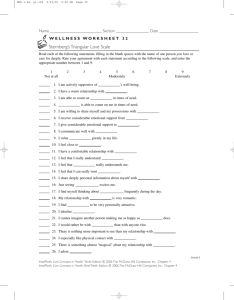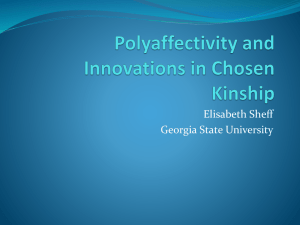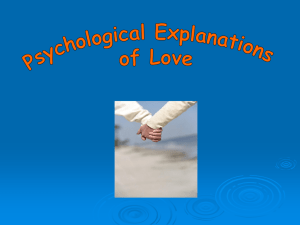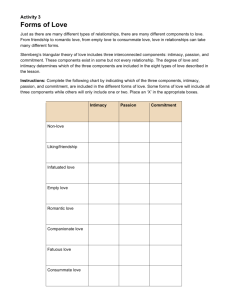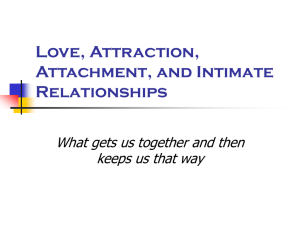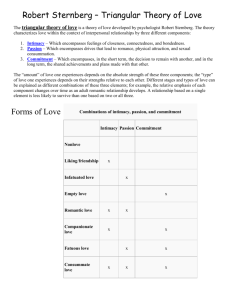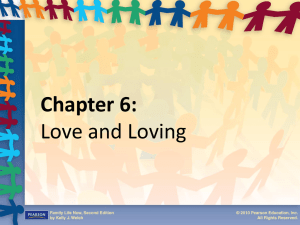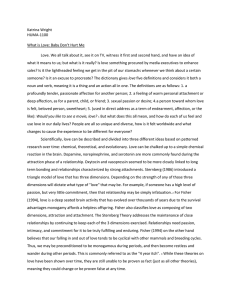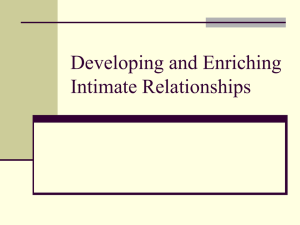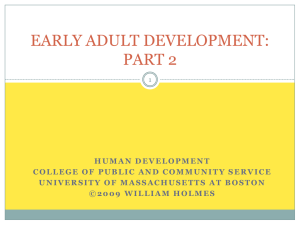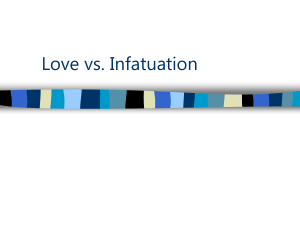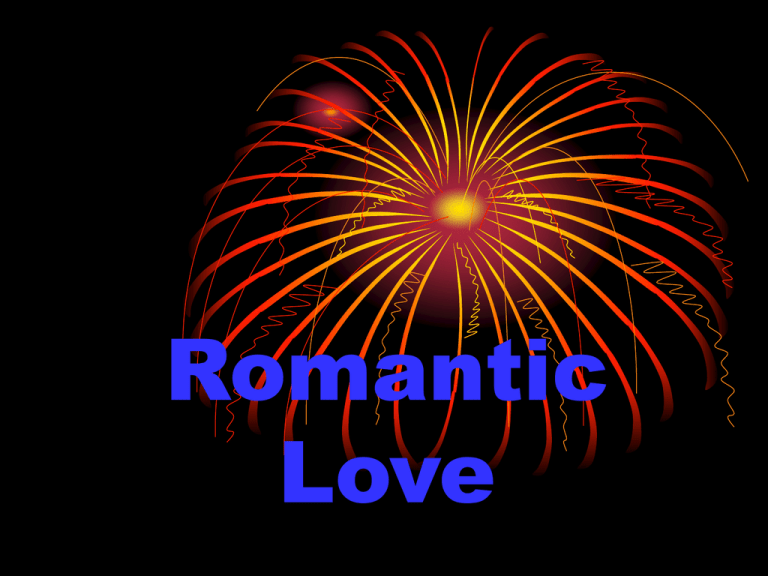
Romantic
Love
Robert Sternberg
• The Love Triangle:
• Romantic love has 3 ‘faces’ –
passion, intimacy and
committment
Passion
• A strong feeling of sexual desire
for another
• Develops the most quickly of
the 3
Intimacy
• Each individual shares himself
or herself with another and
becomes willing to meet the
other’s psychological needs
• Grows very slowly
Commitment
• Commitment grows as the
rewards of the relationship
grows over others becomes
evident
• Each person accepts reciprocal
roles
Sternberg
• Chose triangle because each
side develops at different rates
• The nature of romantic love
changes with time
Michael Liebowitz
• Studies the physiology of human
behaviour
• Limerance
• – high levels of amphetamines in the
hypothalamus gland
• Makes couples alert, flushed face,
rapid heartbeat etc
• The human body reacts to love the
same way as fear
• After time, the chemical
amphetamine is replaced by the
hormone oxytocin
• Gives a state of calm and
satisfaction – less ‘exciting’ but
more enduring
Evolutionary
Perspective
• Love is advantageous
• Passion draws a couple together
with a desire to reproduce, but the
intimacy and commitment that
follow allow them to maintain their
relationship over the long term, to
support each other, and to nurture
and raise children
Helen Harris –
Attributes of Romantic
Love
• A desire for a merger between
the physical and emotions –
sexual desire and a desire for
emotional intimacy are different
but flip side of the same thing
Idealization of the love object
• putting a positive spin on
neutral and even negative traits
Emotional Dependency
• if there is some interruption of
the progress to intimacy, people
get very upset
A desire for exclusivity
Reordering of motivational
priorities:
• What used to be on the top of
the heap – jobs, other
relationships – moves down
Intrusive Thinking:
• Thoughts of the other person
burst into everything, perhaps
due to self-esteem problems in
the obsessed lover
Concern for the beloved:
• This is seen as altruistic,
although it can be an
expression of self-interest. The
flip side of this is how often love
can turn into hate
• Romantic love provides the
psychological motivation for
individuals to want to marry or
to form enduring intimate
relationships in societies in
which marriage is not a social,
economic, or familial obligation
• There is a biological basis for
attraction and a psychological
need to be loved, people have a
desire to connect with each
other and to follow the social
norm of being a couple.


